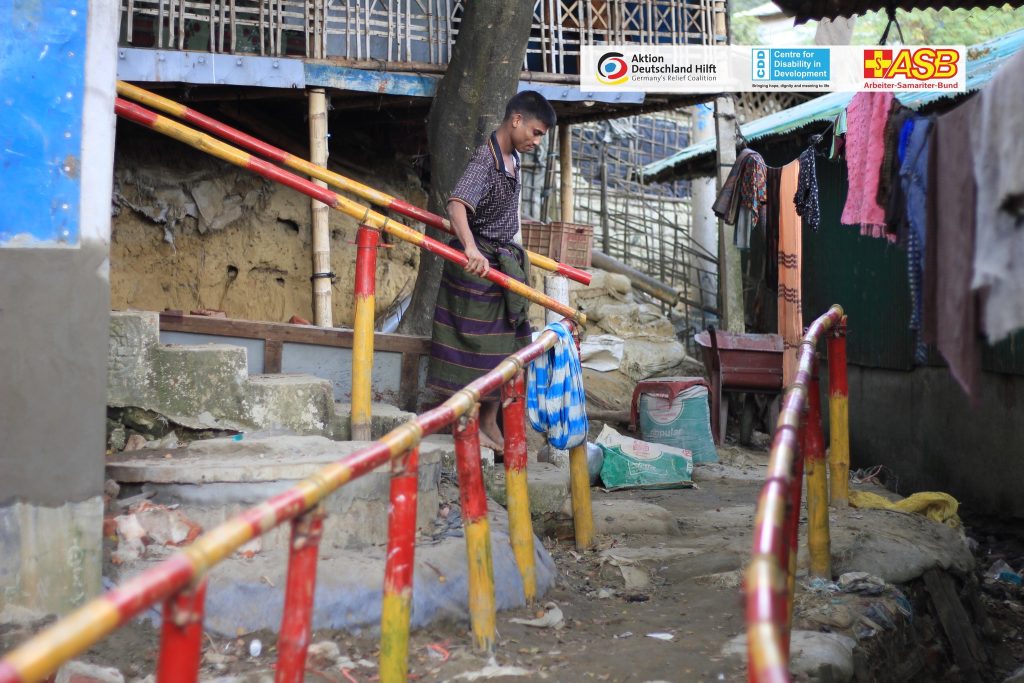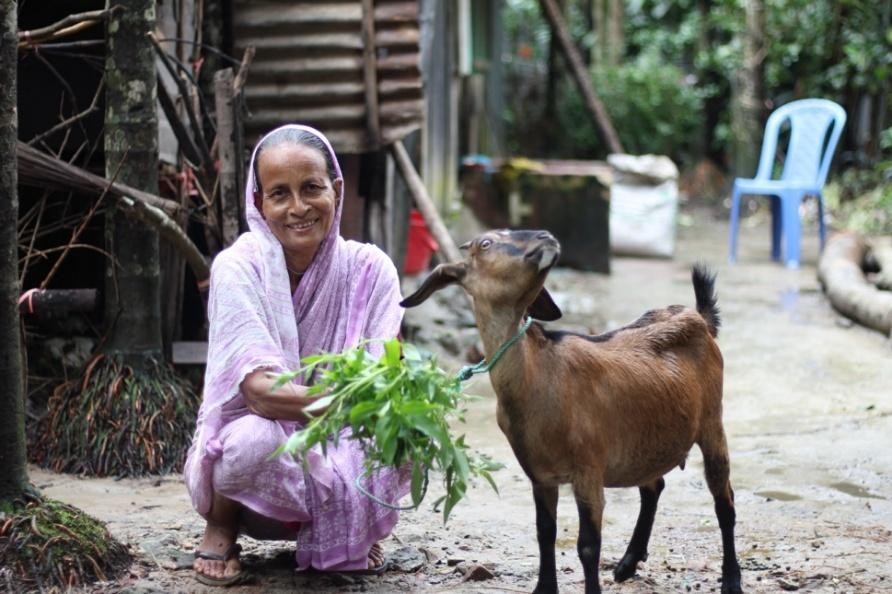Through the project “Advancing Social Dignity and Self-Reliance of Rohingya Population and Host Communities Affected by the Refugee Crisis” (April 2024 – February 2025), Centre for Disability in Development (CDD)—supported by Arbeiter Samariter Bund (ASB) and funded by Aktion Deutschland Hilft (ADH)—worked to improve health, rehabilitation, wellbeing, and economic opportunities for both Rohingya refugees and host communities in Cox’s Bazar, Bangladesh.
Here are the key actions we carried out:
Therapy Support
For many participants, taking even a few steps or carrying out simple daily tasks had once felt impossible. Through the dedication of physiotherapists and therapy assistants, more than 1,800 therapy sessions were delivered to 973 people. These sessions did not only restore strength and mobility but also gave participants the confidence to live more independently.
Assistive Devices
Mobility aids became life-changing tools for those who had struggled in silence. In total, 393 assistive devices—including wheelchairs, crutches, toilet chairs, and hearing aids—were provided in both the camps and host community. Among them, 27 individuals with hearing impairments received hearing aids, opening new doors to communication, connection, and inclusion.

Home Modifications
Sometimes, it is the smallest changes that bring the greatest relief. Simple modifications—such as bamboo handrails to steady each step, raised beds for easier rest, and adapted kitchen counters—transformed shelters into safer, more inclusive homes. These adjustments allowed participants to move freely, regain independence, and live with dignity in their own spaces.

Mental Health and Psychosocial Support
Mental health challenges often went unseen in both camps and host communities. To respond, a psychologist provided counselling through home visits and at a service point in Camp 18, supporting 386 participants. Many shared struggles with anxiety, sleeplessness, fatigue, and trauma, while others faced depression, PTSD, and chronic psychosis. Alongside counselling, simple practices such as breathing exercises, relaxation, and sleep hygiene were introduced, with families encouraged to assist in daily care. These efforts offered not only relief from distress but also renewed hope and resilience.
Eye Care Services

Through a partnership with Cox’s Bazar Baitush Sharaf Hospital, outreach eye camps brought vital services to both host and refugee communities. Screenings, medicines, and prescription eyeglasses were provided, while 207 surgeries—including cataract and tear duct procedures—restored sight for many. In Camp 18 alone, 220 refugees received assessments, medicines, eyeglasses, and 35 surgeries, helping participants regain independence and confidence in daily life.
Community Health Outreach
Four health camps were held in partnership with the Ramu Upazila Health Complex, reaching 653 people with free consultations, screenings, and prescriptions. Many were diagnosed with non-communicable diseases (NCDs), with 568 receiving regular medication and 313 supported with transport for further treatment. Beyond clinical care, over 500 participants gained health information on NCDs, eye health, and menstrual hygiene, while 140 Rohingya refugees were referred for essential services with travel and basic needs covered. These efforts not only provided treatment but also reduced barriers to accessing healthcare for both host and refugee communities.
Strengthening Local Capacity and Engagement
Through this project, local government functionaries, community members, and humanitarian actors were brought together to promote inclusion and improve access to services. Despite disruptions caused by political turmoil, activities were adapted to expand health services—including eye surgeries, assistive device distribution, and additional camps. Seven local youths, including young people with disabilities, were recruited as community interns, gaining valuable skills and experience. Community events and international days were observed with enthusiasm, raising awareness on humanitarian issues and disability inclusion. A final reflection workshop gathered 59 stakeholders to share experiences and lessons, highlighting how inclusive approaches and integrated services strengthened community resilience and improved collaboration with government providers.
Expanding Livelihood Opportunities

To strengthen the resilience of host communities affected by the Rohingya crisis, 181 households were surveyed and carefully assessed, with 57 individuals ultimately selected to receive tailored livelihood support. After endorsement by local authorities, participants received materials and inputs aligned with their skills and market demand—from livestock such as goats, ducks, and chickens to grocery items, tea stall equipment, food carts, bamboo bundles, and fabric for small trade. Practical workshops, including sessions led by government livestock officers, provided hands-on guidance to improve animal care and business management. Of the 57 recipients, 18 were persons with disabilities, ensuring inclusion in economic recovery. These efforts have enabled families to rebuild income streams, regain confidence, and pursue dignified, sustainable livelihoods.

